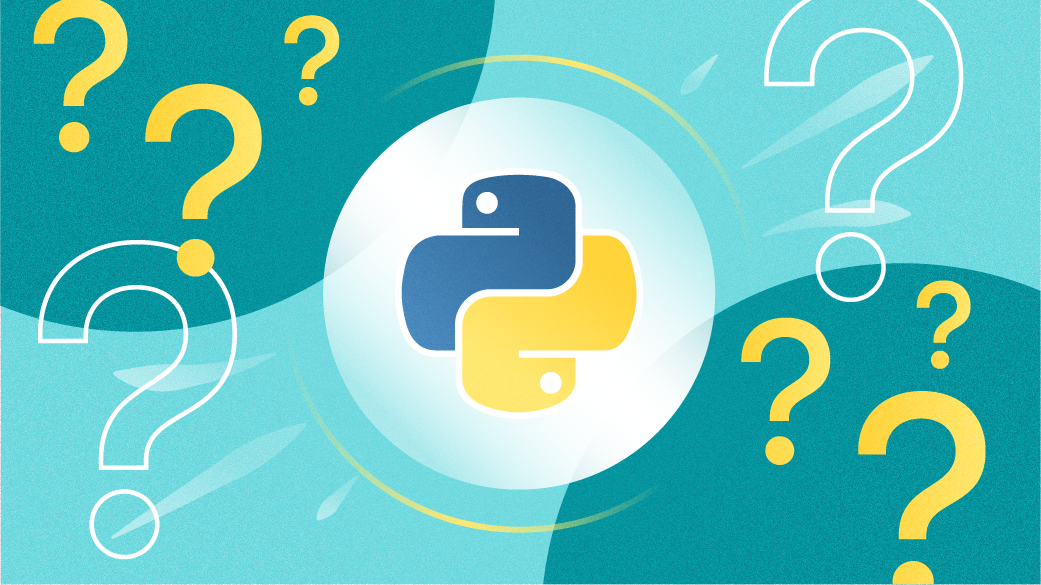Hot take: PyLint is actually good!
"PyLint can save your life" is an exaggeration, but not as much as you might think! PyLint can keep you from really really hard to find and complicated bugs. At worst, it can save you the time of a test run. At best, it can help you avoid complicated production mistakes.
The good
I'm embarrassed to say how common this can be. Naming tests is perpetually weird: Nothing cares about the name, and there's often not a natural name to be found. For instance, look at this code:
def test_add_small():
# Math, am I right?
assert 1 + 1 == 3
def test_add_large():
assert 5 + 6 == 11
def test_add_small():
assert 1 + 10 == 11The test works:
collected 2 items
test.py ..
2 passed
But here's the kicker: If you override a name, the testing infrastructure happily skips over the test!
In reality, these files can be hundreds of lines long, and the person adding the new test might not be aware of all the names. Unless someone is looking at test output carefully, everything looks fine.
Worst of all, the addition of the overriding test, the breakage of the overridden test, and the problem that results in prod might be separated by days, months, or even years.
PyLint finds it
But like a good friend, PyLint is there for you.
test.py:8:0: E0102: function already defined line 1
(function-redefined)The bad
Like a 90s sitcom, the more you get into PyLint, the more it becomes problematic. This is completely reasonable code for an inventory modeling program:
"""Inventory abstractions"""
import attrs
@attrs.define
class Laptop:
"""A laptop"""
ident: str
cpu: strIt seems that PyLint has opinions (probably formed in the 90s) and is not afraid to state them as facts:
$ pylint laptop.py | sed -n '/^laptop/s/[^ ]*: //p'
R0903: Too few public methods (0/2) (too-few-public-methods)The ugly
Ever wanted to add your own unvetted opinion to a tool used by millions? PyLint has 12 million monthly downloads.
"People will just disable the whole check if it's too picky." —PyLint issue 6987, July 3rd, 2022
The attitude it takes towards adding a test with potentially many false positives is..."eh."
Making it work for you
PyLint is fine, but you need to interact with it carefully. Here are the three things I recommend to make PyLint work for you.
1. Pin it
Pin the PyLint version you use to avoid any surprises!
In your .toml file:
[project.optional-dependencies]
pylint = ["pylint"]In your code:
from unittest import mockThis corresponds with code like this:
# noxfile.py
...
@nox.session(python=VERSIONS[-1])
def refresh_deps(session):
"""Refresh the requirements-*.txt files"""
session.install("pip-tools")
for deps in [..., "pylint"]:
session.run(
"pip-compile",
"--extra",
deps,
"pyproject.toml",
"--output-file",
f"requirements-{deps}.txt",
)2. Default deny
Disable all checks. Then enable ones that you think have a high value-to-false-positive ratio. (Not just false-negative-to-false-positive ratio!)
# noxfile.py
...
@nox.session(python="3.10")
def lint(session):
files = ["src/", "noxfile.py"]
session.install("-r", "requirements-pylint.txt")
session.install("-e", ".")
session.run(
"pylint",
"--disable=all",
*(f"--enable={checker}" for checker in checkers)
"src",
)3. Checkers
These are some of the ones I like. Enforce consistency in the project, avoid some obvious mistakes.
checkers = [
"missing-class-docstring",
"missing-function-docstring",
"missing-module-docstring",
"function-redefined",
]Using PyLint
You can take just the good parts of PyLint. Run it in CI to keep consistency, and use the highest value checkers.
Lose the bad parts: Default deny checkers.
Avoid the ugly parts: Pin the version to avoid surprises.







1 Comment